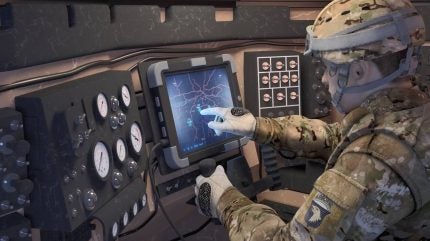
US Defense Innovation Unit (DIU) has awarded contracts to software vendors contributing to the Department of Defense’s Replicator initiative.
The software vendors selected for the project will focus on improving the effectiveness of these systems by developing user interfaces, collaborative autonomy frameworks, and network orchestration tools.
This effort focuses on advancing resilient command and control (C2) and collaborative autonomy solutions for all-domain attritable autonomous (ADA2) systems.
The contracts are part of two commercial solutions openings posted in July 2024, in collaboration with US Indo-Pacific Command and other Department components.
The Opportunistic, Resilient & Innovative Expeditionary Network Topology (ORIENT) project sought solutions to enhance C2 resilience for ADA2 systems.
Since Defense Deputy Secretary Dr Kathleen Hicks announced the Replicator initiative, the Department has accelerated the acquisition of ADA2 systems. Although the primary focus of Replicator is on delivering capabilities for US Indo-Pacific Command, the solutions developed will eventually scale to support the entire joint force.
How well do you really know your competitors?
Access the most comprehensive Company Profiles on the market, powered by GlobalData. Save hours of research. Gain competitive edge.

Thank you!
Your download email will arrive shortly
Not ready to buy yet? Download a free sample
We are confident about the unique quality of our Company Profiles. However, we want you to make the most beneficial decision for your business, so we offer a free sample that you can download by submitting the below form
By GlobalDataDIU director Doug Beck said: “Many leading AI and autonomy firms are outside of our traditional defence industrial base, and DIU is working actively with partners across the Department to bring the very best capabilities from the US tech sector to bear in support of our most critical warfighter needs. This latest step in the Replicator initiative is a critical example of that teamwork in action.”
The first iteration, Replicator 1, launched in August 2023, aims to deliver ADA2 systems at scale across multiple domains by August 2025.
DIU received 130 proposals from 119 companies and awarded prototype contracts to ViaSat, Aalyria, Higher Ground, and IoT/AI.
These companies will deliver ORIENT capabilities to improve system resilience.
The second initiative, the Autonomous Collaborative Teaming project, aimed to automate coordination of swarms of uncrewed assets across multiple domains.
DIU received 165 solutions from 132 companies and awarded prototypes to Swarm Aero, Anduril Industries, and L3Harris Technologies.
L3Harris will provide a user interface, develop collaborative autonomy capability, and serve as a systems integrator.
L3Harris Enterprise Autonomous Solutions vice -president and general manager Toby Magsig said: “We are delivering a multi-domain and multi-mission autonomous ecosystem that can be trusted to operate in contested environments.
“We are focused on the scalability the US military and allied nations need in a mission space that will shape the future of warfighting.”
The ADA2 systems are said to operate best in collaborative teams across domains.
The technology will enable Replicator systems to connect communications solutions to local networks, ensuring operation in disconnected, disrupted, low-bandwidth, and intermittent environments.
Together, these solutions are expected to facilitate ‘heterogeneous collaboration’ between Replicator systems and support the Department’s broader goals for collaborative autonomy.
In October 2024, the US Department of Defense outlined the next phase of its Replicator initiative.



